Gooood morning friends! Hope you had a wonderful holiday weekend and hopefully some time to take a break and relax. I am back home and settled in, sipping on warm lemon water with some shilajit + a coconut matcha latte.
I’m diving into a topic I have become pretty passionate about recently, and that is regenerative agriculture.
Our food has dramatically decreased in nutrient density over the years. There are rarely the proper amount of vitamins and minerals in our food that we need to thrive.
This is because of a few factors, one being modern agriculture. Intensive non-gentle farming methods can strip the soil of nutrients, crops are bred non-seasonally, animals are abused and raised harmfully, and pesticides, herbicides, fertilizers and chemicals are used in abundance.
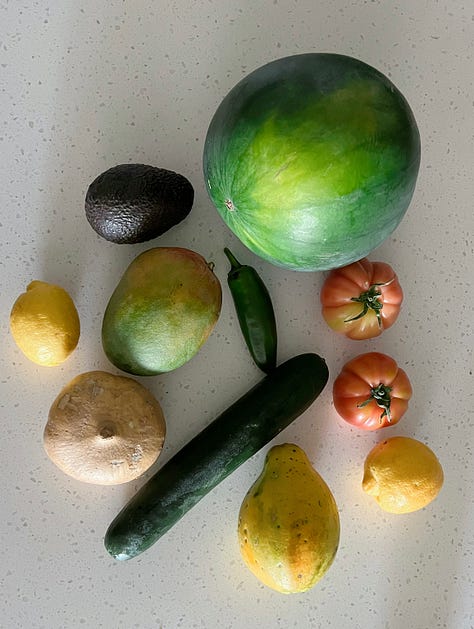
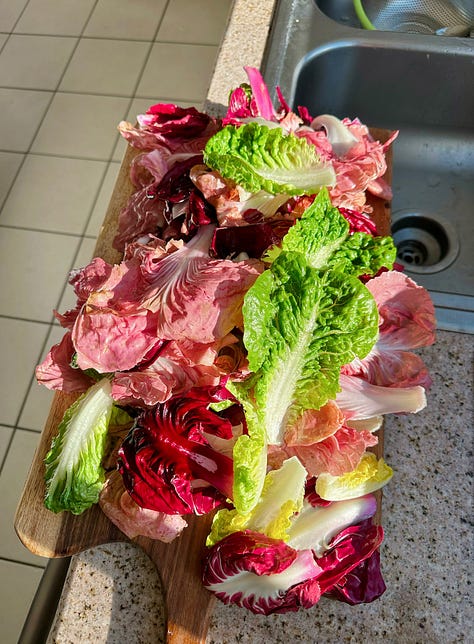
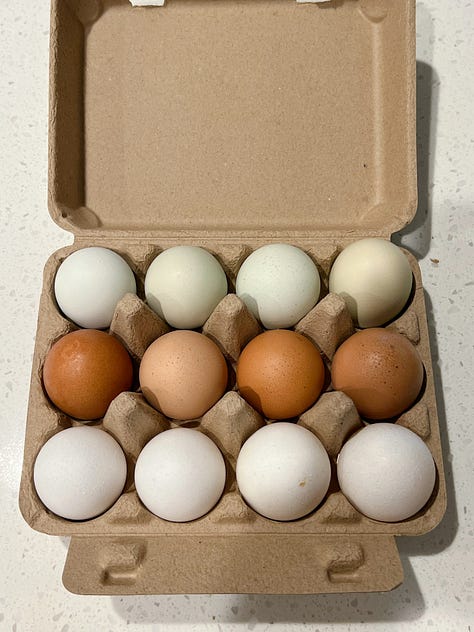
Along with our food becoming less and less nutritious, our soil health is completely depleted, and the health of our atmosphere and environment continues to decline.
Regenerative agriculture is a method of farming being used to combat all of this. Healthier food, healthier animals, healthier soil, healthier environment…healthier us.
What We’re Chatting About:
Food Labels & What to Look Out For
What is Regenerative Agriculture
How does Regenerative Agriculture Impact us and the Environment
How to Support Regenerative Farming
Mine & Your Favorite Brands Prioritizing Regenerative Agriculture (VOTE WITH YOUR DOLLAR BABY!!!!)
Food Labeling
Labeling of food has become so convoluted and confusing that it can be a puzzle just to figure out what the hell it is we’re actually buying. This is because so many of the brands out there love to use loopholes and marketing verbiage meant to confuse us into thinking the product we’re buying is good for us.
We didn’t used to have to label our foods, food was food, and food was naturally organic. Now a days, a product out there with a million things on the ingredient list and words that are impossible to pronounce is able to use terms like “natural” and “heart healthy”, just to get you to buy it.
PSA: I teeter the line between becoming stressed out about an ingredient and the actual harm of an ingredient because there is a point where stress crosses the threshold and it is no longer healthy. It is important to be knowledgable and educated without letting that knowledge worry us. Having fun, being present and enjoying life is more important than consuming a toxic ingredient once in a while. It is the consistent consumption over time that causes issues.
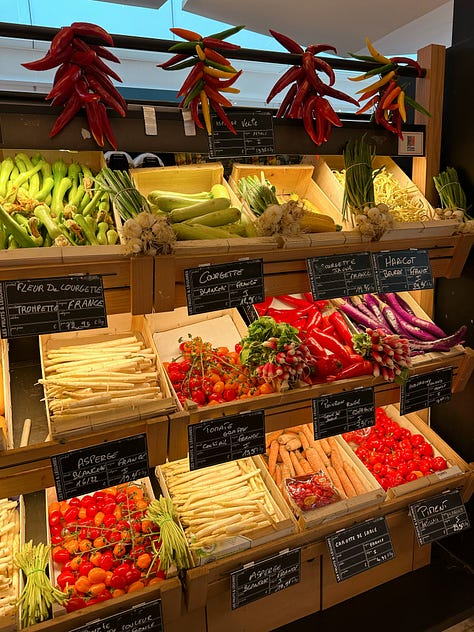
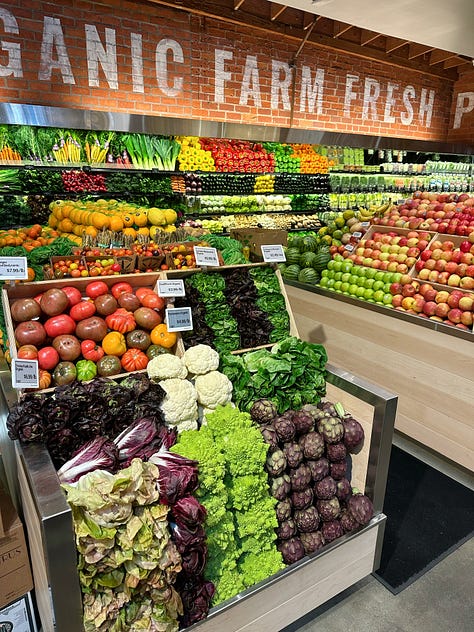
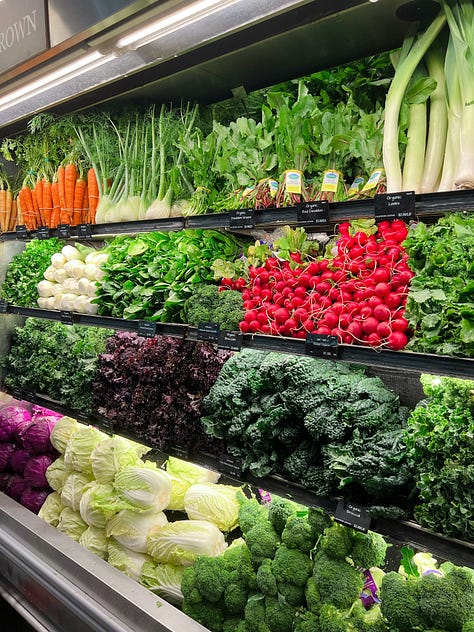
Unfortunately today conventional produce is sprayed with pesticides and herbicides, which kills the nutrients within the food itself, spreads into the air to damage the environment and also destroys soil health which is integral to a nourishing finished product. The health of our soil is the main contributor to the health of our food. Today, even the word organic has a million loopholes to it. I recommend checking out The Real Organic Project to learn more about this!
Cows and chickens are being fed GMO corn, soy and grains to be fattened up. Then they are getting sick (of course, as this is not how nature intended), so in turn being shot up with antibiotics and hormones before being killed and sold. It is an abhorrent and abusive process. Instead of letting animals graze on pastures, live healthy and happy lives and tend to the soil before going through the circle of life, big corporations want to take shortcuts that hurt the animals, hurt the environment, and hurt us - so they benefit.
I know it can feel exhausting…but don’t give up. It is easier to get real quality food than you may think, just got to put in a little extra effort (it’s worth it)!
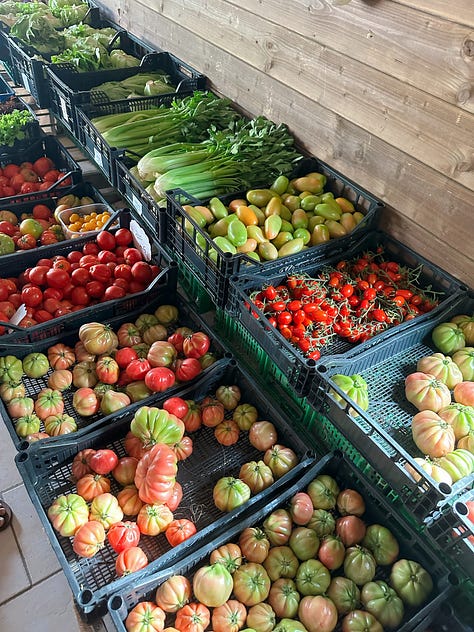

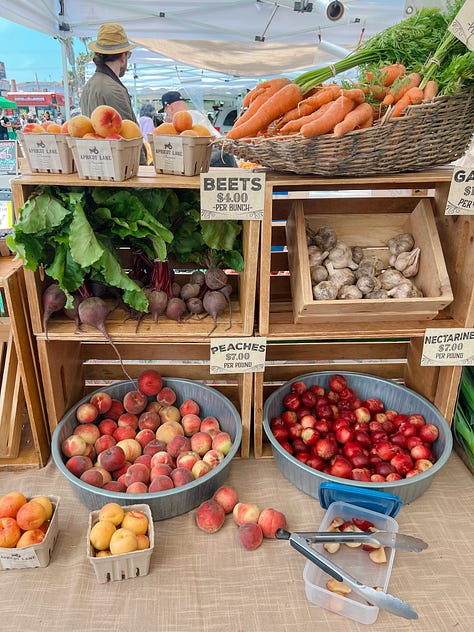
Supporting Local Farms
PS: Stay tuned till the end where I list a ton of regenerative-based farms and brands!
The best way to get quality food is to know the source of our food. Look for items that are transparent with where there ingredients come from. The easiest way to do that is to go directly to the source - the farmer! This is why I love shopping at farmers markets. A small farm is much more likely to have quality practices versus a large corporation. VOTE WITH YOUR DOLLAR and support your local small farms!!! Ask about their farm, farming practices, ingredient sourcing, etc.
If you aren’t able to make it to the farmers market, I recommend joining a CSA in your area! A community supported agriculture directly benefits your local farmers. Each week, or month, whichever subscription you choose, they send a big box of seasonal produce to your door, for a great price.
Shopping at Grocery Stores
Big chain grocery stores is where it gets a bit more confusing. Of course there’s always a couple of good items, but usually when a company has the scale to provide for big chains, they aren’t often using the most ethical standards. Outside of farms and farmers markets, look for smaller natural food stores in your area, local butchers and co-op markets.
Transparency with ingredients is key and more important than random marketing lingo. If the product says where the ingredients originate from, (Ex. OneDegree has a program where you can scan their products and it tells you exactly where the farm is that the ingredient comes from), that is usually a good sign! Another bonus is products that have been tested for toxic heavy metals, or are glyphosate residue free. They are doing their diligence!
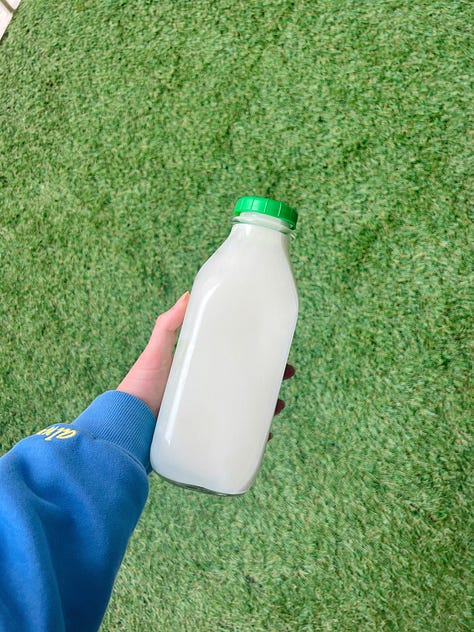
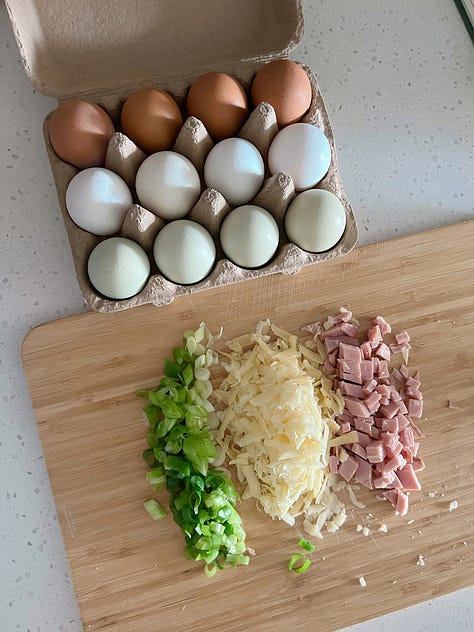
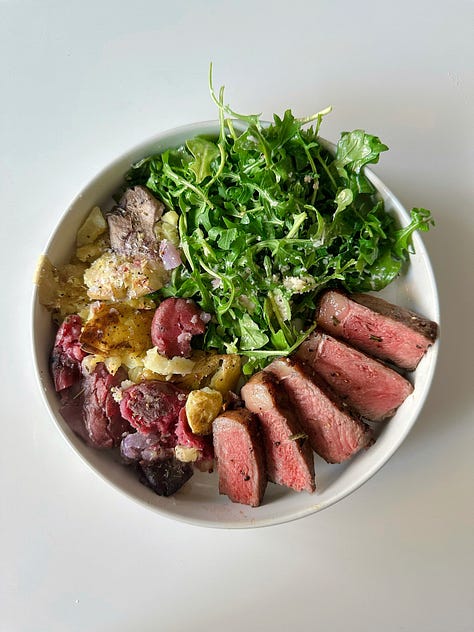
When it comes to meat, fish, dairy and eggs, labeling is important as well. For meat - the best option is typically organic, pasture raised and “100% grass-fed” or “Grass-fed and grass-finished”. Even better if it is regenerative. The reason for this labeling is important because companies can put “grass-fed” onto their meat even if they only fed it grass once and never again. Crazy right?
For dairy, I prefer raw, but outside of that it is similar to meat - organic, pasture-raised, 100% grass fed dairy is best! For milk, A2 non-homogenized low pasteurized is a great option.
For fish, I always prefer ethically wild caught. Farmed fish is not to be trusted in my opinion.
For eggs and chicken, no surprise here this is a huge consumer trap when it comes to labeling. The best option is organic and pasture raised (or regenerative if that is an option!). Pasture raised is important*. This means they are able to roam free in the outdoors as they are supposed to! If you see the labels “cage-free” or “free range”, a lot of times that is a trick. They may not be in cages, but they may still be trapped in a crowded indoors with no access to sunlight. They may have free range outside for 5 minutes during the day but are trapped indoors and crowded for the majority of their lives. *For smaller farmers, this labeling is different so make sure to talk to your farmer.
Overall, I am starting to see more products prioritize regenerative agriculture which is a huge win for all of us.
What is Regenerative Agriculture?
Regenerative Agriculture is a holistic farming method with a goal to:
Rehabilitate soil health
Increase nutrient density and diversity in soil
Protect the environment and ecosystem
Practice ethical animal welfare
Raise animals as nature intended
Build healthier communities
Create nourishing and abundant food

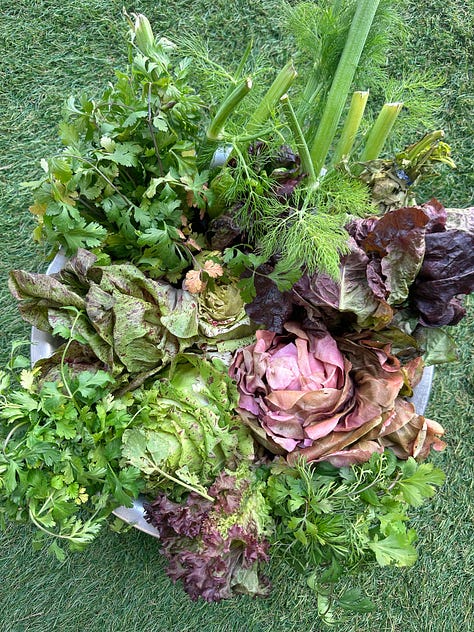
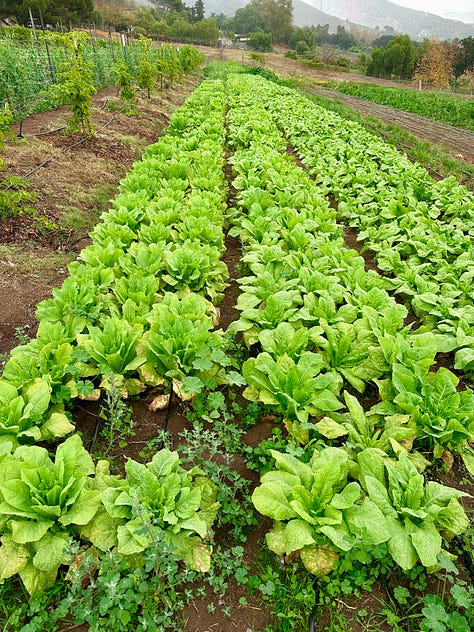
Regenerative agriculture recognizes that we need animals to maximize healthy crops. We need quality soil health to increase nutrient density in our food and help to save the environment. It recognizes and honors that nature is a harmonious and perfect system, and we need to support that in order to thrive.
The healthier the soil, the healthier our food. In order to increase the health of our soil - RA practices cover cropping, livestock integration, and crop rotation in order to increase the health and diversity of soil.
By supporting healthy soil, RA is combating environmental damage. A lot of climate issues are caused by an excess of CO2 in the atmosphere. When soil is healthy, it is it’s natural process to remove CO2 from the atmosphere and store it in the ground, this process is known as carbon sequestration, therefore reducing the excess of CO2 in the atmosphere. Learning this fascinated me. Nature is a perfect system, we just need to know how to support it instead of strip it.
“Research shows that improving soil health increases carbon sequestration, reduces greenhouse gas emissions, increases drought resilience, enhances water quality, boosts crop yield, increases nutrient availability, provides pollinator habitat, and suppresses many plant diseases.” - Soil Health Institute
So How Can WE Support Regenerative Agriculture?
Well, you’re already doing it now. Education and building knowledge is the best way to begin. I will share more resources down below, but here are a few books as well:
Resources to follow:
The Regenerative Social Club just started a new program to bring custom produce boxes from SoCal local farmers into your hands. They also have amazing events!
Aside from education, the best thing we can do is vote with our dollar. Show our support to local farmers, and talk with them about farming practices. If you have the room, even start your own regenerative garden or farm!
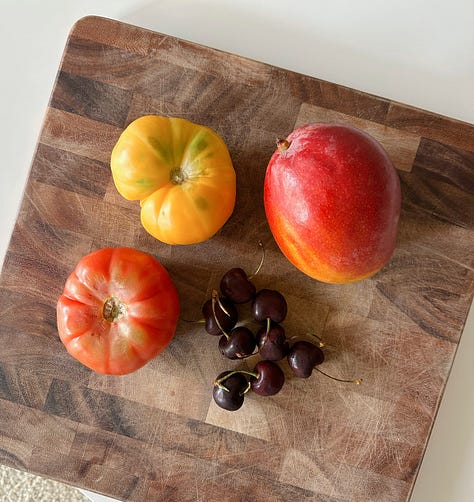
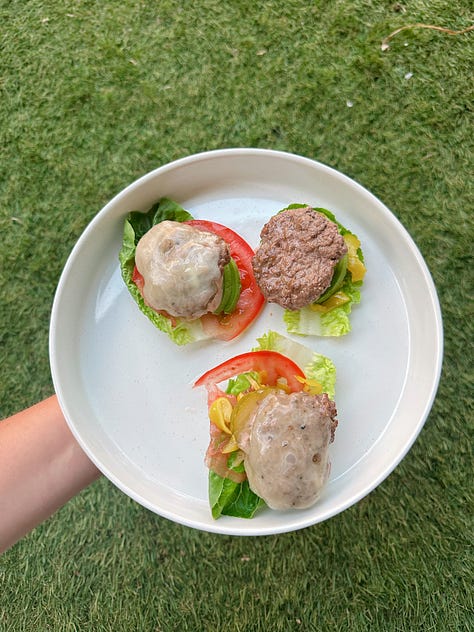
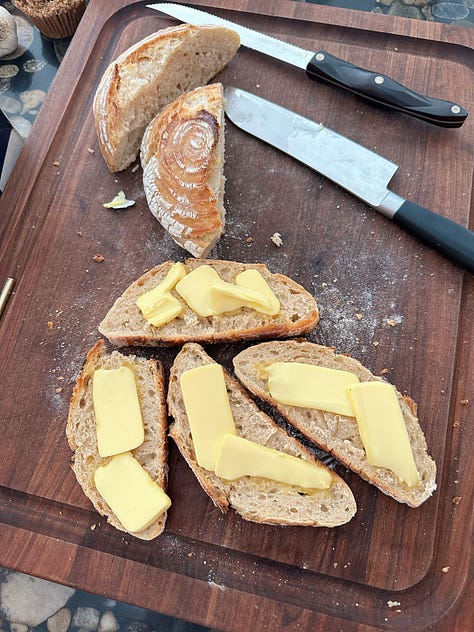
Brands & Companies who Support Regenerative Agriculture
PS: Thank YOU for sharing your favorites!!! Let’s show ‘em all our support
Force of Nature: They have amazing quality meats. I love their ground beef, bison steaks, sausages & they recently just came out with meatballs!
Thrive Market: An incredible grocery delivery service that has put a lot of time into ingredient quality and sourcing, and recently a lot of effort into regenerative agriculture! You can select “regenerative” on products and find a whole group of them! I love it, with this link you can get 30% off your first order + a free gift.
Primally Pure: Amazing clean beauty & skincare. They recently just started their own regenerative farm to source ingredients from. “15ELLA” works a discount.
Sun & Moo: A beautiful quality tallow-based skincare brands that prioritizes sourcing regeneratively!
Lineage Provisions: They have incredible protein powder and beef sticks, sourced from the highest quality farms that prioritize regenerative farming. “ELLA10” works as discount.
Heart & Soil: The best quality animal-based supplements! Animal organs, colostrum…They WORK and are sourced from the highest quality regenerative farms. “GLOWWITHELLA10” works as a discount.
Fond Bone Broth: The best bone broth ever. They use regenerative farming methods and organic ingredients, and you can taste + feel the difference. This was the first animal product I incorporated after being plant-based and it was life-changing! I never went back. “GLOWWITHELLA” works as a discount.
Vital Farms: Recently came out with their organic restorative eggs which are sourced from regenerative farms.
Lundberg Farms: The best regenerative organic certified rice products.
Alexandre Family Farms: The best A2 dairy.
Sage Regenerative Kitchen and Brewery: Go show this woman & her restaurant some love… what she’s doing is incredible.
Seven Sons: A regenerative farming selling meat, poultry and fish.
Thousand Hills: Regeneratively raised 100% grass-fed beef.
Nourish Cooperative: Regeneratively raised farm-fresh foods.
Sample Farm: Louisiana based regenerative farm.
Grassroots: 100% grass-fed regenerative meats.
Wild Pastures: Grass-fed regenerative meats.
Patagonia Provisions: Delicious regenerative snacks, I love their sourdough crackers!
Farmer Direct Foods: Great regenerative flours.
One Degree Foods: Regenerative options and transparent traceable ingredients.
North Bridger Bison: Regenerative bison meat.
White Oak Pastures: Regeneratively raised meats.
Alec’s Ice Cream: A2 regenerative ice creams.
Primal Pastures: Regeneratively raised meats.
Did we miss any? If you want to share any resources you love or brands you buy from - comment them below please! Would love to spread the word.
I hope you enjoy this topic as much as I do! I find it so interesting and fascinating, and I love that it is being talked about more!
Bottom line: we have the power to change the course of the environment and overall health of us and animals by voting with our dollar and supporting local farmers.
Love you all - grateful for you all, and I will talk to you soon! Xo - Ella






So informational!
New Barn organics sells regenerative organic certified plant milks (almond milk, coconut milk) at many grocers including Whole Foods that’s just nut, water, salt (and they have a vanilla one if preferred). Their plant milks are so much creamier than Malk or any of the other 3-ingredient plant milks. They also sell regenerative organic eggs that are only $7.50 for a dozen at Whole Foods!
Another brand is Ice Cream for Bears (sold at some Sprouts and other local grocers around the country) - regenerative organic milk used and only sweetened with honey. Super clean!
I also love SIMPLi quinoa that’s regenerative organic and sold so many places including Whole Foods